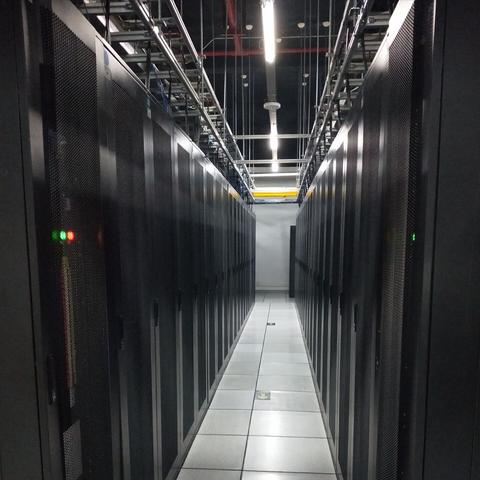Navigating the Digital World: The Pros and Cons of Managed Servers
Managed servers are an increasingly popular choice for businesses looking to streamline their IT infrastructure. They come with a range of benefits and drawbacks that should be carefully considered before adopting this technology.,,One of the biggest advantages of managed servers is their efficiency. By outsourcing the management of servers to a third-party provider, businesses can save time and effort, freeing up resources to focus on other critical areas of their operations. This can result in improved productivity and reduced costs.,,Another advantage is the availability and reliability of managed servers. With proper maintenance and support from the service provider, managed servers can handle high loads and provide consistent performance, even when under stress. This means that businesses can operate smoothly without worrying about downtime or technical issues.,,However, there are also some drawbacks to consider. Managed servers may require significant upfront investment, including software and hardware costs, as well as ongoing maintenance fees. Additionally, there is a risk of being locked into a long-term contract, which can limit flexibility and scalability.,,In conclusion, while managed servers offer many benefits for businesses looking to streamline their IT infrastructure, they also come with some potential drawbacks. It is important for businesses to carefully weigh these factors before making a decision about whether to adopt managed servers or not.
Introduction:
In today's fast-paced digital landscape, businesses and individuals alike are increasingly turning to managed servers for their computing needs. Managed servers offer a range of benefits that can enhance productivity, efficiency, and security. However, with every solution comes its own set of challenges. This article aims to explore the advantages and disadvantages of using managed servers, offering a comprehensive analysis to help readers make an informed decision.

Advantages of Managed Servers
1、Cost Efficiency: One of the primary advantages of managed servers is their cost-effectiveness. Rather than purchasing and maintaining physical hardware, managed hosting providers handle all aspects of server management, including software installation, configuration, and updates. This not only saves money but also reduces the risk of hardware failures or data breaches.
2、Expertise: Managed services providers have extensive knowledge and experience in the industry. They offer specialized support, such as troubleshooting complex issues or implementing advanced security measures, which can be beneficial for businesses that require high levels of technical expertise.
3、Scalability: As businesses grow, they need more resources to accommodate their increased workload. Managed servers offer scalability options, allowing users to easily add or remove resources as needed without having to worry about managing infrastructure on their own.
4、Peace of Mind: Managed services providers take care of all technical issues, ensuring that your website or application runs smoothly and efficiently. This peace of mind can be particularly valuable for those with less technical background who may find it challenging to maintain a robust online presence.

5、Convenience: With managed servers, users don't need to invest time and resources into setting up and managing their own servers. Instead, they can focus on what they do best – running their business. This convenience is especially appealing to small businesses or startups that lack the necessary IT expertise or resources.
Disadvantages of Managed Servers
1、Limited Customization: While managed servers provide many benefits, there is often a trade-off in terms of customization. Some services may limit certain features or settings, which could be unfavorable for those who value flexibility or want to tailor their environment to their specific needs.
2、Dependence on Service Provider: Managed servers rely heavily on the service provider's uptime and performance. If the provider experiences downtime, this could result in lost revenue, damaged reputation, and customer dissatisfaction.
3、Limited Control: While some managed services offer greater control over certain aspects of server management, others may limit user access or impose restrictions on what users can do. This limited control can be problematic for those who need to perform complex tasks or who value the ability to customize their server environment to their specific requirements.

4、Higher Upfront Costs: Managed servers often come with higher upfront costs than traditional hosting methods. This investment can be significant for small businesses or startups that are just starting out and may not be able to afford the initial expense.
5、Limited Support: While managed servers provide a level of technical support, they may not offer the same level of personalized assistance as dedicated hosting services. This could be problematic for those who require immediate and tailored solutions to address specific issues or concerns.
Conclusion:
While managed servers present numerous benefits, it's essential to weigh these against the potential drawbacks before making a decision. Ultimately, choosing between managed and non-managed servers will depend on the specific needs of the business, the available budget, and the level of technical support required. By understanding the pros and cons, organizations can make informed choices that align with their long-term goals and ensure a stable and efficient digital presence.
与本文知识相关的文章:



